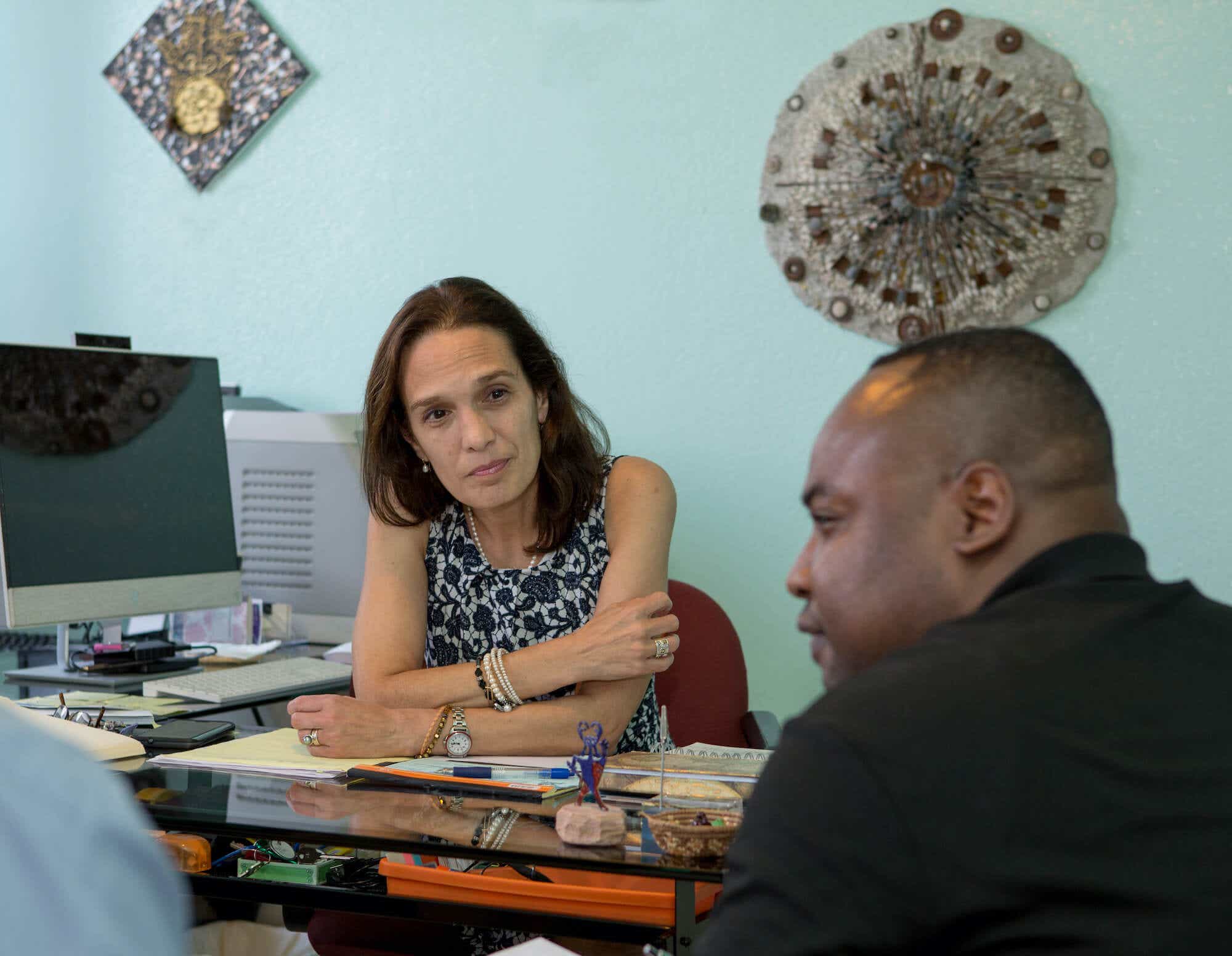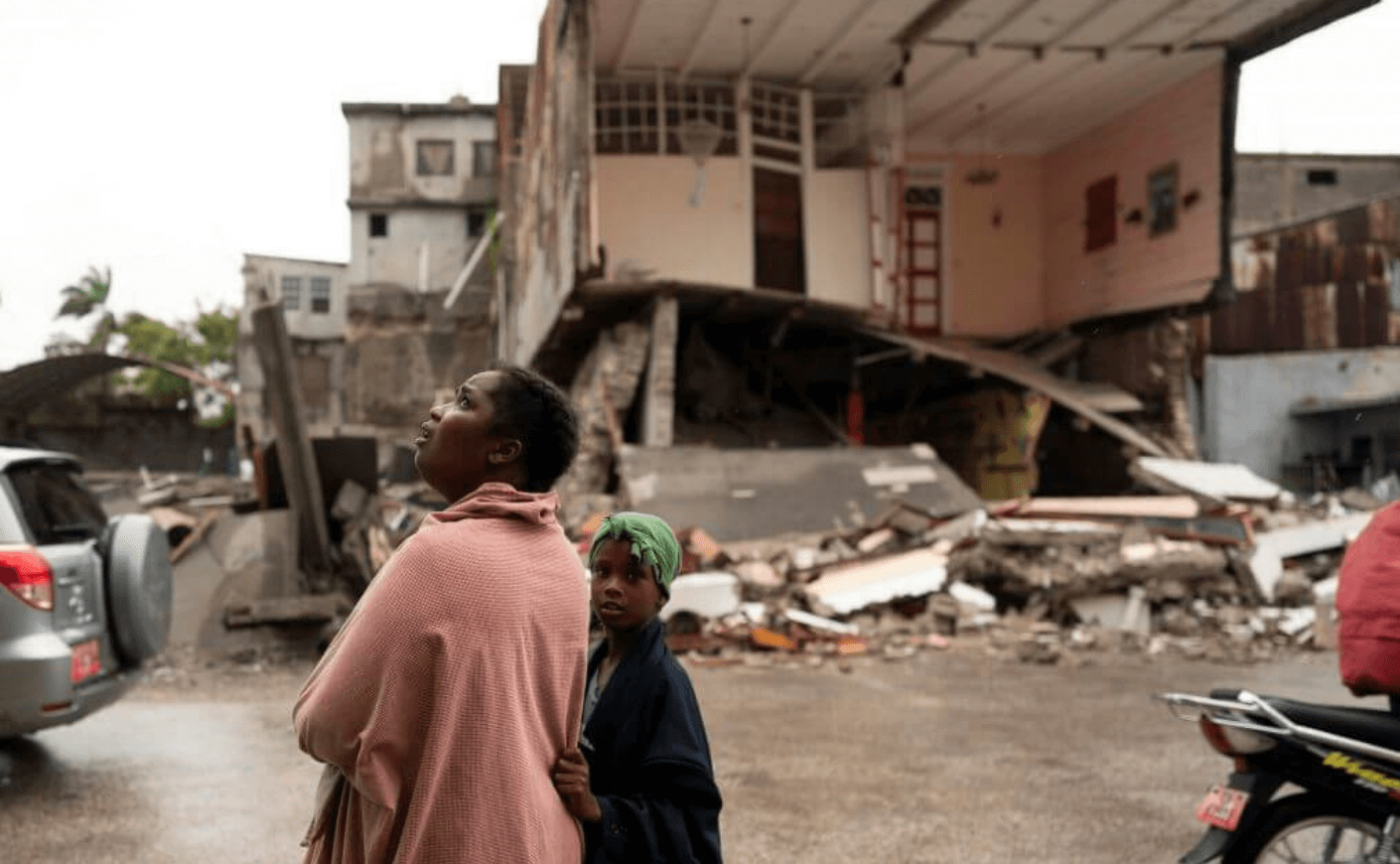The 7.2 magnitude earthquake that hit Haiti on Saturday, August 14th did catastrophic damage: The death toll has continued to rise, as emergency workers dig through the rubble of once-proud buildings in the country’s major cities. Hundreds remain missing, but the survivors of the quake were delivered a second blow when the island was hit by Tropical Storm Grace the following Tuesday. UNICEF’s estimate for the number of people impacted by these events? Roughly 1.2 million.
To understand what doctors and aid workers are up against, we spoke with Nadesha Mijoba, the Haiti County Director for Haitian Health Foundation. Located in Jérémie, the capital city of Haiti’s Grand’Anse department, Mijoba has witnessed incredible suffering, and her team is facing astounding obstacles for the future. We spoke with her to learn more:
KCM: What are you seeing on the ground in Haiti right now?
Mijoba: The situation is quite devastating. In the three departments that were hit by the earthquake — the Grand’Anse, Sud, and Nippes — the damage is severe. I’m in Jérémie, and when you look down into the city, the closer you get to the water, the more damage there is. The banks have damage, the community markets, stores, etc. — they’re closed. We’re observing a lot more patients coming down from rural areas for services. We’re seeing severely infected wounds, head injuries, fever, dehydration, diarrhea. And we’re seeing terrible destruction of houses and health centers. So the situation is quite critical.
KCM: How is the 2010 earthquake’s impact on the infrastructure affecting the situation now?
Mijoba: Well, the impact is tremendous because we had a vulnerable health system to begin with, especially in certain rural and mountainous areas of the country. So these small health centers that are now destroyed cannot provide even basic healthcare for their immediate areas, and they were overwhelmed already. Patients in those areas have to walk very far through difficult terrain to get services — terrain that’s now even more dangerous since the storm. The other significant problem is that the bridge that allows vehicles to enter Jérémie is destroyed. So that further impairs the ability to mobilize patients, as well as the aid entering the area.
KCM: On top of all of that, the Haitian president was assassinated last month. How has that factored into the situation?
Mijoba: Well, that was a traumatic event for people: Waking up to their leader, their president — whether they liked him, didn’t like him, or were in line politically with him or not — having been killed. That created an incredible level of uncertainty for the population, as to what the future holds. Then we had these catastrophic events one after another — an earthquake, and then that storm. And everybody’s wondering what’s going to happen to us. I’ll tell you this: There is an incredible level of fear. People are afraid to go inside their homes so they’re sleeping out on the street. People are angry and upset and nervous, besides the fact that they’re extremely scared.
KCM: What can you tell us about the Haitian Health Foundation’s efforts right now? What are you prioritizing?
Mijoba: We’re prioritizing the healthcare needs of the community. Seventy percent of our health services are mobile clinics: cars with doctors, nurses, pharmacy equipment, etc., that go out to very hard-to-reach areas on a normal functioning day. But it’s been extremely difficult to get to some areas. We’ve begun to evacuate patients from those areas, but there are still a lot of areas that we haven’t been able to reach.

KCM: The crisis in Afghanistan obviously began unfolding over the weekend, too. Did that disrupt the flow of resources to Haiti?
Mijoba: I really don’t know the answer, but I can imagine that if the world is watching an incredible event unfolding in Afghanistan, that creates a distraction from all other events. We’re also in the middle of a pandemic, and still dealing with COVID-19. That may also have an impact on the availability of supplies, and make it difficult to provide the aid necessary.
KCM: How has COVID affected the situation otherwise?
Mijoba: We’re a vaccination and COVID-19 vaccination site, and we’re trying to continue to vaccinate the population. We’re concerned with the amount of people entering the country right now, possibly bringing the Delta variant to the country. People are a little hesitant about the Covid vaccine because they’re concerned about its safety. However, mobilizing education and working with religious leaders and community leaders, the HHF began to see changes — people were coming into the clinic to get vaccinated. We were able to vaccinate close to 800 people, and then the earthquake hit. So you can imagine that at this time, that’s the last priority on people’s minds.
But there are so many stories of people really mobilizing to help clear the roads and to help move debris to save others. I have to commend the staff of the clinic and the local hospital because imagine it: Many of them have destroyed homes, and yet they walked away from those homes to start delivering health services to the community. The first responders are choosing to go help other people first.
KCM: What are you anticipating the next few days and weeks to look like?
Mijoba: Well, we’re watching a public health crisis unfold. Over the last year, 61% of children in the country under the age of five are malnourished. And we see those numbers growing. In addition to that, the sanitation conditions — people living out on the streets, and lack of resources available at the community level — are going to start creating a situation that… I’m not sure how we are going to manage if we don’t get aid here as soon as possible.
KCM: A lot of people want to know the best way to help. What would you tell them?
Mijoba: I would tell people to really identify those organizations that have history in Haiti, and that are well-established in Haiti and have credibility and resources. And by resources, I mean the infrastructure necessary to be able to deliver the services to those who most need them. Second to that, right now, no matter how small the dollar, any donation would absolutely help.
KCM: Emotionally, how is your staff doing?
Mijoba: My staff is a bit fragile right now. We can certainly sense that. However, they’ve almost buried those feelings to be able to keep going and serve the patients that are coming in. Each day, there are more and more patients and that’s exactly what we expected would happen. Based on our experience with Hurricane Matthew, it wasn’t until five to seven days after the event that we really began to see high numbers of patients.
KCM: So you’re bracing for an influx in the coming weeks, right?
Mijoba: Yes. And in addition, we have to continue providing our normal services: vaccinating children, making sure that our HIV patients have the care they need, making sure that women with risky pregnancies are monitored. And those services must continue. The COVID vaccination, the education, the nutrition program has to continue. So the reconstruction is going to be long and hard.
KCM: And this probably won’t be the last earthquake Haiti sees, but hopefully the next one isn’t for a very long time.
Mijoba: I don’t believe that this is the last earthquake or the last storm that we’re going to see. We still have a few more months ago before hurricane season is over. So let’s hope that Haiti doesn’t get hit anymore by any natural disasters.
This interview has been edited for length and clarity









